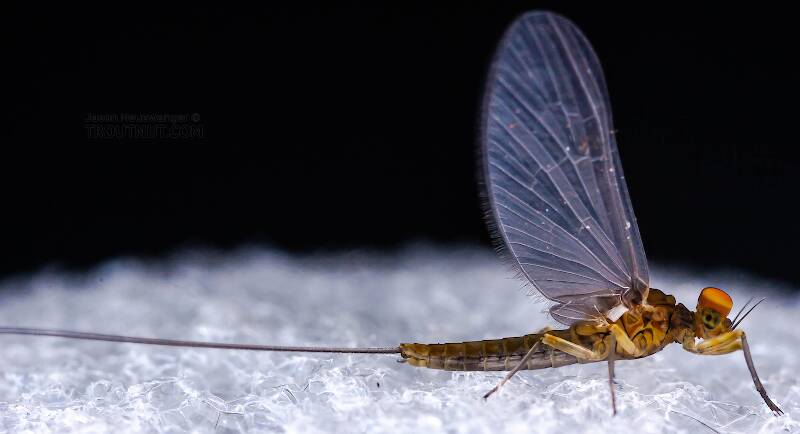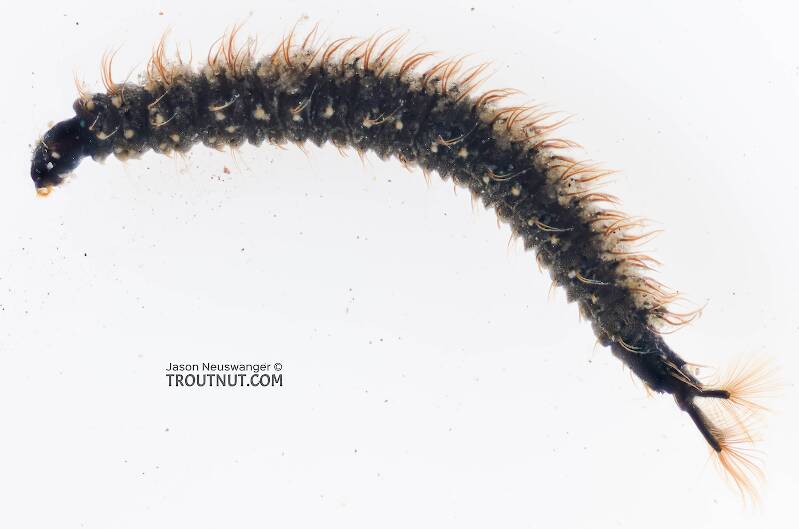
Blue-winged Olives
Baetis
Tiny Baetis mayflies are perhaps the most commonly encountered and imitated by anglers on all American trout streams due to their great abundance, widespread distribution, and trout-friendly emergence habits.
Featured on the forum

This wild-looking little thing completely puzzled me. At first I was thinking beetle or month larva, until I got a look at the pictures on the computer screen. I made a couple of incorrect guesses before entomologist Greg Courtney pointed me in the right direction with Psychodidae. He suggested a possible genus of Thornburghiella, but could not rule out some other members of the tribe Pericomini.

Troutnut is a project started in 2003 by salmonid ecologist Jason "Troutnut" Neuswanger to help anglers and
fly tyers unabashedly embrace the entomological side of the sport. Learn more about Troutnut or
support the project for an enhanced experience here.
Caddisfly Species Pycnopsyche lepida (Great Autumn Brown Sedges)
Where & when
This is the most abundant midwestern species of Pycnopsyche. It may share streams with Pycnopsyche guttifer. It can be very abundant.In 71 records from GBIF, adults of this species have mostly been collected during August (31%), September (28%), July (24%), and October (10%).
In 26 records from GBIF, this species has been collected at elevations ranging from 177 to 9186 ft, with an average (median) of 2822 ft.
Species Range
Start a Discussion of Pycnopsyche lepida
References
- LaFontaine, Gary. 1981. Caddisflies. The Lyons Press.
- Swisher, Doug and Carl Richards. 2000. Selective Trout. The Lyons Press.
Caddisfly Species Pycnopsyche lepida (Great Autumn Brown Sedges)
Species Range
Common Names
Resources
- NatureServe
- Integrated Taxonomic Information System
- Global Biodiversity Information Facility
- Described by Hagen (1861)

